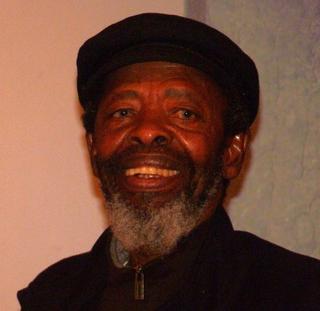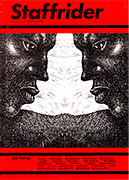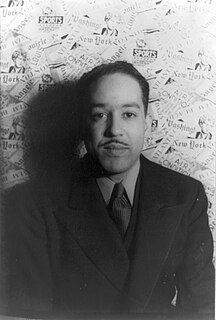Related Research Articles

Nadine Gordimer was a South African writer, political activist and recipient of the 1991 Nobel Prize in Literature. She was recognized as a woman "who through her magnificent epic writing has – in the words of Alfred Nobel – been of very great benefit to humanity".
Postcolonial literature is the literature by people from formerly colonized countries. It exists on all continents except Antarctica. Postcolonial literature often addresses the problems and consequences of the decolonization of a country, especially questions relating to the political and cultural independence of formerly subjugated people, and themes such as racialism and colonialism. A range of literary theory has evolved around the subject. It addresses the role of literature in perpetuating and challenging what postcolonial critic Edward Said refers to as cultural imperialism.
The poetry of South Africa covers a broad range of themes, forms and styles. This article discusses the context that contemporary poets have come from and identifies the major poets of South Africa, their works and influence.
The Black Consciousness Movement (BCM) was a grassroots anti-Apartheid activist movement that emerged in South Africa in the mid-1960s out of the political vacuum created by the jailing and banning of the African National Congress and Pan Africanist Congress leadership after the Sharpeville Massacre in 1960. The BCM represented a social movement for political consciousness.
[Black Consciousness'] origins were deeply rooted in Christianity. In 1966, the Anglican Church under the incumbent, Archbishop Robert Selby Taylor, convened a meeting which later on led to the foundation of the University Christian Movement (UCM). This was to become the vehicle for Black Consciousness.

Lewis Nkosi was a South African writer, who spent 30 years in exile as a consequence of restrictions placed on him and his writing by the Suppression of Communism Act and the Publications and Entertainment Act passed in the 1950s and 1960s. A multifaceted personality, he attempted every literary genre, literary criticism, poetry, drama, novels, short stories, essays, as well as journalism.

Keorapetse William Kgositsile, also known by his pen name Bra Willie, was a South African Tswana poet, journalist and political activist. An influential member of the African National Congress in the 1960s and 1970s, he was inaugurated as South Africa's National Poet Laureate in 2006. Kgositsile lived in exile in the United States from 1962 until 1975, the peak of his literary career. He made an extensive study of African-American literature and culture, becoming particularly interested in jazz. During the 1970s he was a central figure among African-American poets, encouraging interest in Africa as well as the practice of poetry as a performance art; he was well known for his readings in New York City jazz clubs. Kgositsile was one of the first to bridge the gap between African poetry and Black poetry in the United States.
Sudanese literature refers to both oral as well as written works of fiction and nonfiction that were created during the cultural history of today's Republic of the Sudan. This includes the territory of what was once Anglo-Egyptian Sudan, as well as this area's long and diverse history.
Mazisi (Raymond) Kunene was a South African poet best known for his poem Emperor Shaka the Great. While in exile from South Africa's apartheid regime, Kunene was an active supporter and organizer of the anti-apartheid movement in Europe and Africa. He would later teach at University of California, Los Angeles (UCLA), and become Africa's and South Africa's poet laureate.

Burger's Daughter is a political and historical novel by the South African Nobel Prize in Literature-winner Nadine Gordimer, first published in the United Kingdom in June 1979 by Jonathan Cape. The book was expected to be banned in South Africa, and a month after publication in London the import and sale of the book in South Africa was prohibited by the Publications Control Board. Three months later, the Publications Appeal Board overturned the banning and the restrictions were lifted.

South African literature is the literature of South Africa, which has 11 national languages: Afrikaans, English, Zulu, Xhosa, Sotho, Pedi, Tswana, Venda, SiSwati, Tsonga, and Ndebele.

Christopher (Chris) van Wyk was a South African children’s book author, novelist and poet. Van Wyk is famous for his poem "In Detention" on the suspicious deaths that befell South African political prisoners during Apartheid. He was also an editor at Ravan Press.
Daniel Canodoise "Can" Themba was a South African short-story writer.
Afrikaans literature is literature written in Afrikaans. Afrikaans is a daughter language of Dutch and is spoken by the majority of people in the Western Cape of South Africa and among Afrikaners and coloured South Africans in other parts of South Africa, Namibia, Zimbabwe, Botswana, Lesotho and Swaziland. Afrikaans was historically one of the two official languages of South Africa, the other being English, but it currently shares the status of an "official language" with ten other languages.
Miriam Tlali was a South African novelist. She was the first black woman in South Africa to publish an English-language novel, Between Two Worlds, in 1975. She was also one of the first to write about Soweto. Most of her writing was originally banned by the South African apartheid regime.

Staffrider was a South African literary magazine that was published between 1978 and 1996.

Clarence Major is an American poet, painter, and novelist; winner of the 2015 "Lifetime Achievement Award in the Fine Arts," presented by the Congressional Black Caucus Foundation. He was awarded the 2016 PEN Oakland/Reginald Lockett Lifetime Achievement Award.

Bernardine Anne Mobolaji Evaristo, OBE, FRSL, FRSA, FEA, is a British author of eight works of fiction. Her most recent novel, Girl, Woman, Other, won the Booker Prize in 2019, the first black woman and the first black British person to win it. In 2020 she won the British Book Awards: Fiction Book of the Year and Author of the Year, as well as the Indie Book Award for Fiction. The novel was one of Barack Obama's 19 Favourite Books of 2019. In June 2020 she became the first woman of colour and the first black British writer to get to #1 in the UK paperback fiction charts, where it held the top spot for five weeks. The novel is currently being translated into 35 languages. Evaristo's writing also includes short fiction, drama, poetry, essays, literary criticism, and projects for stage and radio. Two of her books, The Emperor's Babe (2001) and Hello Mum (2010), have been adapted into BBC Radio 4 dramas. She is Professor of Creative Writing at Brunel University London and the vice-chair of the Royal Society of Literature.
Christopher Hope, FRSL is a South African novelist and poet who is known for his controversial works dealing with racism and politics in South Africa. His son is violinist Daniel Hope.

James Mercer Langston Hughes was an American poet, social activist, novelist, playwright, and columnist from Joplin, Missouri. One of the earliest innovators of the then-new literary art form called jazz poetry, Hughes is best known as a leader of the Harlem Renaissance. He famously wrote about the period that "the Negro was in vogue", which was later paraphrased as "when Harlem was in vogue."

The apartheid regime in South Africa began in 1948 and lasted until 1994. It involved a system of institutionalized racial segregation and white supremacy, and placed all political power in the hands of a white minority. Opposition to apartheid manifested in a variety of ways, including boycotts, non-violent protests, and armed resistance. Music played a large role in the movement against apartheid within South Africa, as well as in international opposition to apartheid. The impacts of songs opposing apartheid included raising awareness, generating support for the movement against apartheid, building unity within this movement, and "presenting an alternative vision of culture in a future democratic South Africa."
References
- ↑ Gareth Cornwell; Dirk Klopper; Craig Mackenzie (20 August 2013). The Columbia Guide to South African Literature in English Since 1945. Columbia University Press. p. 358. ISBN 978-0-231-50381-5 . Retrieved 14 June 2015.
- ↑ Barbara A. Lehman; Jay Heale; Anne Hill; Thomas van der Walt (24 September 2014). Creating Books for the Young in the New South Africa: Essays on Authors and Illustrators of Children's and Young Adult Literature. McFarland. p. 103. ISBN 978-0-7864-7551-3 . Retrieved 14 June 2015.
As of 15:27, 29 September 2009, this article is derived in whole or in part from Chimurenga library. The copyright holder has licensed the content in a manner that permits reuse under CC BY-SA 3.0 and GFDL. All relevant terms must be followed.The original text was at "Wietie"
- Michael Chapman (ed), Soweto poetry, McGraw-Hill, Johannesburg; New York, 1982.
- Peter D. McDonald, The Literature Police: Apartheid Censorship and its Cultural Consequences, Oxford University Press, 2009